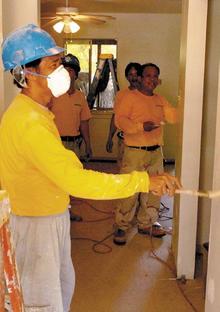The Costs of Information
Computerized maintenance management is all about information: recording knowledge that you might need to perform maintenance operations and to evaluate the effectiveness of those operations. To determine the Return on Investment (ROI) of a CMMS package, it's useful to figure out the costs of handling your information.
What costs do you have to look at?
- The cost of information tracking
- How much do you spend on keeping track of information? How much time do individual workers spend making records of what they've done? Does your CMMS save time over other methods of record-keeping? Does your CMMS make it easy enough to keep records that your people will actually do it?
- The cost of information retrieval
- How fast can your people find the information they need? How fast can you look up whether a particular piece of equipment is under warranty, or what spare parts it takes? How fast can you check which storeroom contains a particular spare part, and whether that part is in stock? How fast can you determine who's been assigned to do a particular job, and what the status of that job is?
- The cost of information analysis
- How easy is it for you to get the big picture? How easy is it for you to see all the little details in one place at the same time? How easy is it for you to organize information in different ways, to show different perspectives of your operation? When upper management asks you a question, how easy is it to find the answer?
- The cost of information communication
- How can you make sure that the people who need information can get it? How can you check that they really are aware of important details? What do you have to do to be well-informed yourself? What policies should be in place to make sure that information flows easily everywhere it should?
- The cost of not having information
- When calculating all the costs of information handling, you must weigh them against the cost of not having the information you need. What has gone wrong in the past when people were out of the loop? What did it cost? How much time gets wasted when people are missing important data? How much time do workers spend looking for spare parts, or trying to find information about a piece of equipment? What do you spend on wasted effort? What do you lose on downtime when a problem isn't detected soon enough?
To answer such questions, it's often helpful to keep close track of people's time for a short period. For example, you might have all your workers keep records of exactly what they do in the course of a week. Where do they spend most of their time? If you could reduce the time required for a particular aspect of work, how much of a difference would it make? If workers do some task frequently, shaving a few minutes off that task might mean big benefits overall...but it might be pointless to optimize something they do very rarely.
As always, the point is to find out what's truly happening. You can't make intelligent management decisions until you know where you are.




